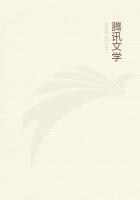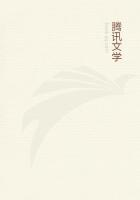Her love of plainness and distaste for affectation were forms of veracity. But in narrative of hers one got much besides plain realities. These had their significance heightened by her eager emotion, and their picturesqueness by her happy artistry.... Of course the warmth of her sympathy cut off all inclination to falsehood for its usual selfish purpose. But against generous untruth she was not so well guarded. Kindness was the first thing.... Tact too, once become a habit, made adaptation to the mind addressed a constant concern. She had extraordinary skill in stuffing kindness with truth; and into a resisting mind could without irritation convey a larger bulk of unwelcome fact than any one I have known. But that insistence on colorless statement which in our time the needs of trade and science have made current among men, she did not feel. Lapses from exactitude which do not separate person from person she easily condoned."
Surely the manly virtues of truthfulness and courage could be no better exemplified than in the writing of this passage. Whether his readers, especially the women, will agree with Professor Palmer that, in woman, truthfulness and courage "take a subordinate place, subservient to omnipresent sympathy", is a question.
Between 1876 when she was graduated from Michigan, and 1879 when she went to Wellesley, Miss Freeman taught with marked success, first at a seminary in the town of Lake Geneva, Wisconsin, where she had charge of the Greek and Latin; and later as assistant principal of the high school at Saginaw in Northern Michigan. Here she was especially successful in keeping order among unruly pupils.
The summer of 1877 she spent in Ann Arbor, studying for a higher degree, and although she never completed the thesis for this work, the university conferred upon her the degree of Ph.D. in 1882, the first year of her presidency at Wellesley.
In this same summer of 1877, when she was studying at Ann Arbor, she received her first invitation to teach at Wellesley. Mr. Durant offered her an instructorship in Mathematics, which she declined.
In 1878 she was again invited, this time to teach Greek, but her sister Stella was dying, and Miss Freeman, who had now settled her entire family at Saginaw, would not leave them. In June, 1879, the sister died, and in July Miss Freeman became the head of the Department of History at Wellesley, at the age of twenty-four.
Mr. Durant's attention had first been drawn to her by her good friend President Angell, and he had evidently followed her career as a teacher with interest. There seems to have been no abatement in his approval after she went to Wellesley. We are told that they did not always agree, but this does not seem to have affected their mutual esteem. In her first year, Mr. Durant is said to have remarked to one of the trustees, "You see that little dark-eyed girl? She will be the next president of Wellesley." And before he died, he made his wishes definitely known to the board.
At a meeting of the trustees, on November 15, 1881, Miss Freeman was appointed vice president of the college and acting president for the year. She was then twenty-six years of age and the youngest professor in the college. In 1882 she became president.
During the next six years, Wellesley's growth was as normal as it was rapid. This is a period of internal organization which achieved its most important result in the evolution of the Academic Council. "In earlier days," we are told by Professor Palmer, "teachers of every rank met in the not very important faculty meetings, to discuss such details of government or instruction as were not already settled by Mr. Durant." But even then the faculty was built up out of departmental groups, that is, "all teachers dealing with a common subject were banded together under a head professor and constituted a single unit," and, as Mrs. Guild tells us, Miss Freeman "naturally fell to consulting the heads of departments as the abler and more responsible members of the faculty," instead of laying her plans before the whole faculty at its more or less cumbersome weekly meetings. From this inner circle of heads of departments the Academic Council was gradually evolved. It now includes the president, the dean, professors, associate professors (unless exempted by a special tenure of office), and such other officers of instruction and administration as may be given this responsibility by vote of the trustees.
Miss Freeman also "began the formation of standing committees of the faculty on important subjects, such as entrance examinations, graduate work, preparatory schools, etc."
This faculty, over which Miss Freeman presided, was a notable one, a body of women exhibiting in marked degree those qualities and virtues of the true pioneer: courage, patience, originality, resourcefulness, and vision. There were strong groups from Ann Arbor and Oberlin and Mt. Holyoke, and there was a fourth group of "pioneer scholars, not wholly college bred, but enriched with whatever amount of academic training they could wring or charm from a reluctant world, whom Wellesley will long honor and revere."
With the organization of the faculty came also the organization of the college work. Entrance examinations were made more severe.
Greek had been first required for entrance in 1881. A certificate of admission was drawn up, stating exactly what the candidate had accomplished in preparation for college. Courses of study were standardized and simplified. In 1882, the methods of Bible study were reorganized, and instead of the daily classes, to which no serious study had been given, two hours a week of "examinable instruction" were substituted. In this year also the gymnasium was refitted under the supervision of Doctor D. A. Sargent of Harvard.

